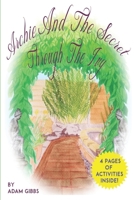Existentialism at the Wheel
Select Format
Select Condition 
More by Adam Gibbs
Book Overview
Traversing American landscapes both outer and inner, these poems veer from the personal to the political and back as they try to make sense of a senseless age. Dreams and distance, shootings and storms, viruses and violence. These poems confront all the forces that mark our troubled present and point the way to an uncertain future.
Format:Paperback
Language:English
ISBN:1956692703
ISBN13:9781956692709
Release Date:June 2023
Publisher:Unsolicited Press
Length:72 Pages
Weight:0.22 lbs.
Dimensions:0.2" x 5.5" x 8.5"
Customer Reviews
14 customer ratings | 6 reviews
There are currently no reviews. Be the first to review this work.























